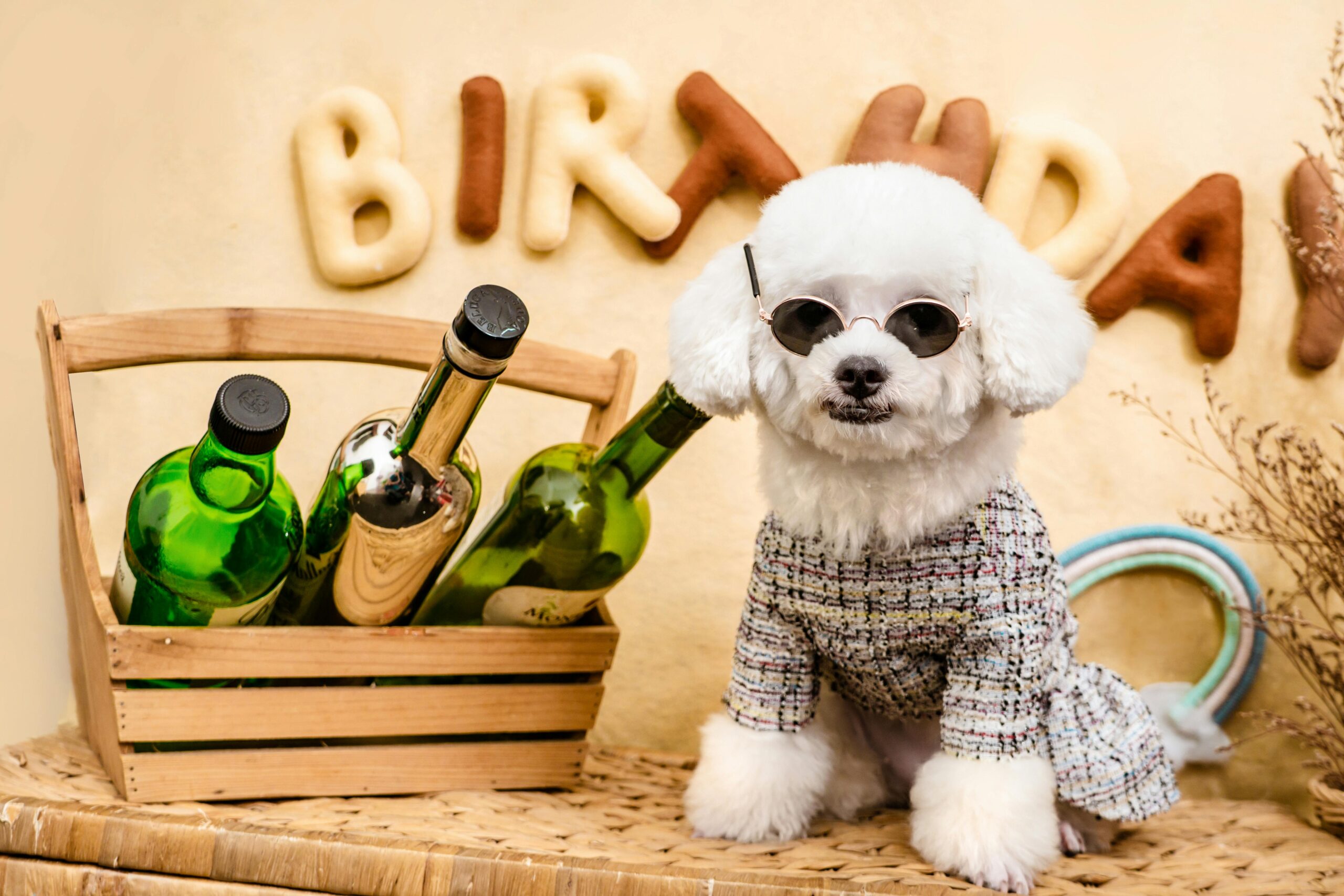How to Create a Fun Dog Trivia Game
Dogs are an endless source of joy, loyalty, and surprises, making them the perfect inspiration for a trivia game that combines fun with learning. Hosting a dog-themed trivia game is a fantastic way to entertain friends, family, or any group of dog lovers. With the right preparation, creativity, and engaging questions, you can create a memorable experience that delights and educates everyone. This guide will show you how to create an enjoyable, interactive dog trivia game that’s sure to be a hit.
1. Define Your Dog Trivia Game’s Purpose and Audience
To create the best dog trivia game, start by identifying your audience and purpose. Are you creating a fun family game, a classroom activity, or a competitive trivia challenge for a group of dog enthusiasts? This will help shape the questions, difficulty level, and format of the game.
- Family-Friendly Fun: If your game is for a family audience, include questions suitable for all ages, covering general dog facts and popular dog breeds.
- Dog Enthusiasts: For dog lovers, consider including more specialized questions about canine behavior, breed characteristics, and historical dog facts.
- Educational Trivia: For educational purposes, questions should focus on dog care, health, and behavioral facts to promote awareness about pet care.
2. Choose a Format for Your Dog Trivia Game
Selecting the right game format can make a big difference in keeping players engaged. Here are some popular trivia game formats to consider:
- Traditional Quiz Format: Players take turns answering questions. This format works well for smaller groups and one-on-one trivia games.
- Team-Based Challenge: Divide players into teams and award points for each correct answer. This format encourages teamwork and competition.
- Interactive App or Online Platform: Use trivia apps or online quiz platforms to make the game more interactive. This format is ideal for remote participants and larger groups.
3. Gather Interesting Dog Trivia Questions
The core of any trivia game is the quality of its questions. To create a well-rounded set of questions, cover a wide range of dog-related topics. Below are some categories and sample questions to help inspire your game:
A. Dog Breeds and Characteristics
Covering different dog breeds adds variety and can be educational.
- Sample Question: “Which breed is known as the smallest dog in the world?”
- Answer: The Chihuahua
- Sample Question: “What is the primary role of a Border Collie?”
- Answer: Herding sheep
B. Famous Dogs in History and Pop Culture
Everyone loves hearing about famous dogs, from real-life heroes to beloved cartoon characters.
- Sample Question: “What was the name of the dog in the movie Lassie?”
- Answer: Lassie
- Sample Question: “Which dog breed is Scooby-Doo?”
- Answer: Great Dane
C. Dog Health and Care
These questions are great for teaching responsible pet ownership.
- Sample Question: “How often should you brush a dog’s teeth?”
- Answer: At least two to three times a week
- Sample Question: “True or False: Dogs can only see in black and white.”
- Answer: False (Dogs can see colors but have limited color vision compared to humans)
D. Fun Facts and Unusual Dog Behaviors
Add a touch of humor with quirky, fun facts about dogs.
- Sample Question: “Why do dogs kick their legs after they pee?”
- Answer: To mark their territory with scent glands in their paws
- Sample Question: “What percentage of a dog’s life is spent sleeping?”
- Answer: About 50%
4. Organize Questions by Difficulty Level
Creating levels of difficulty will keep the game challenging and exciting for players. Divide questions into three categories:
- Easy: Basic dog knowledge that most people know. Ideal for starting the game on a fun note.
- Intermediate: More detailed questions that require some knowledge of dogs.
- Advanced: In-depth or obscure questions perfect for dog experts or as tie-breakers.
5. Design Engaging Rules and Scoring System
Having clear, engaging rules makes the game flow smoothly. Here are some ideas for setting up rules and scoring:
- Points for Difficulty: Award points based on the difficulty level of each question, e.g., 1 point for easy, 2 points for intermediate, and 3 points for advanced questions.
- Bonus Rounds: Include bonus rounds where players can earn extra points for answering tricky questions.
- Penalty for Incorrect Answers: To add suspense, impose a small penalty for wrong answers, like a loss of a point or a time delay before they can answer again.
6. Add Visual and Audio Elements for an Interactive Experience
Incorporate multimedia elements to make the game more engaging and dynamic. Here’s how:
- Images of Dog Breeds: Show images of different dog breeds and ask players to identify them. This adds a visual component that can make the game more enjoyable.
- Sound Clips: Play recordings of dog sounds, such as barks from different breeds or even famous dogs from movies, and ask players to guess the breed or the dog.
- Video Clips: Short clips of dogs performing tricks or famous scenes from dog movies can make the game even more entertaining.
7. Decide on the Game Duration and Number of Questions
Decide how long you want the game to last, as this will influence the number of questions and rounds:
- Short Game (15-20 mins): Ideal for quick breaks or warm-up activities; limit the game to 10-15 questions.
- Medium-Length Game (30-45 mins): Perfect for casual gatherings; plan for around 20-30 questions.
- Long Game (1 hour or more): For dedicated trivia nights or larger groups; prepare 40+ questions with multiple rounds.
8. Prepare Prizes for Extra Excitement
Incentives can make any game more exciting. Consider offering prizes to the winner or top-scoring team. Here are some prize ideas for a dog-themed trivia game:
- Dog Toys and Treats: Great for dog owners who bring their pets along.
- Customized Dog Accessories: Collars, bandanas, or bowls make fun, practical prizes.
- Gift Cards to Pet Stores: For players without dogs, pet store gift cards are a versatile option.
9. Create a Dog Trivia Game Score Sheet or App
If you’re hosting a trivia night, a well-organized score sheet or digital scoreboard keeps the game flowing and tracks players’ progress. You can create a score sheet using a template or use a trivia app that includes scoring features.
- Printable Score Sheet: Prepare a sheet where each team or player can log their points.
- Digital Scoreboard: Use a trivia platform or a slideshow to display scores in real-time, making it easier to follow the game’s progression.
10. Test and Practice Before the Game
Before your trivia event, do a trial run to ensure everything is smooth. Testing the questions and multimedia elements lets you adjust any issues and ensures a seamless experience for your players.
11. Tips for Hosting the Perfect Dog Trivia Game
As the host, keep the energy high and the pace steady to maintain engagement. Here are a few tips for hosting:
- Keep the Game Lighthearted: Even if the questions are challenging, maintain a fun and relaxed atmosphere.
- Encourage Participation: Allow everyone a chance to answer and engage in the game.
- Be Ready with Fun Facts: Share additional information after each answer to make the game informative as well as entertaining.
Creating a fun dog trivia game takes preparation, creativity, and enthusiasm. With these steps, you can create a memorable trivia event that entertains, educates, and brings people together in appreciation of our canine companions.










